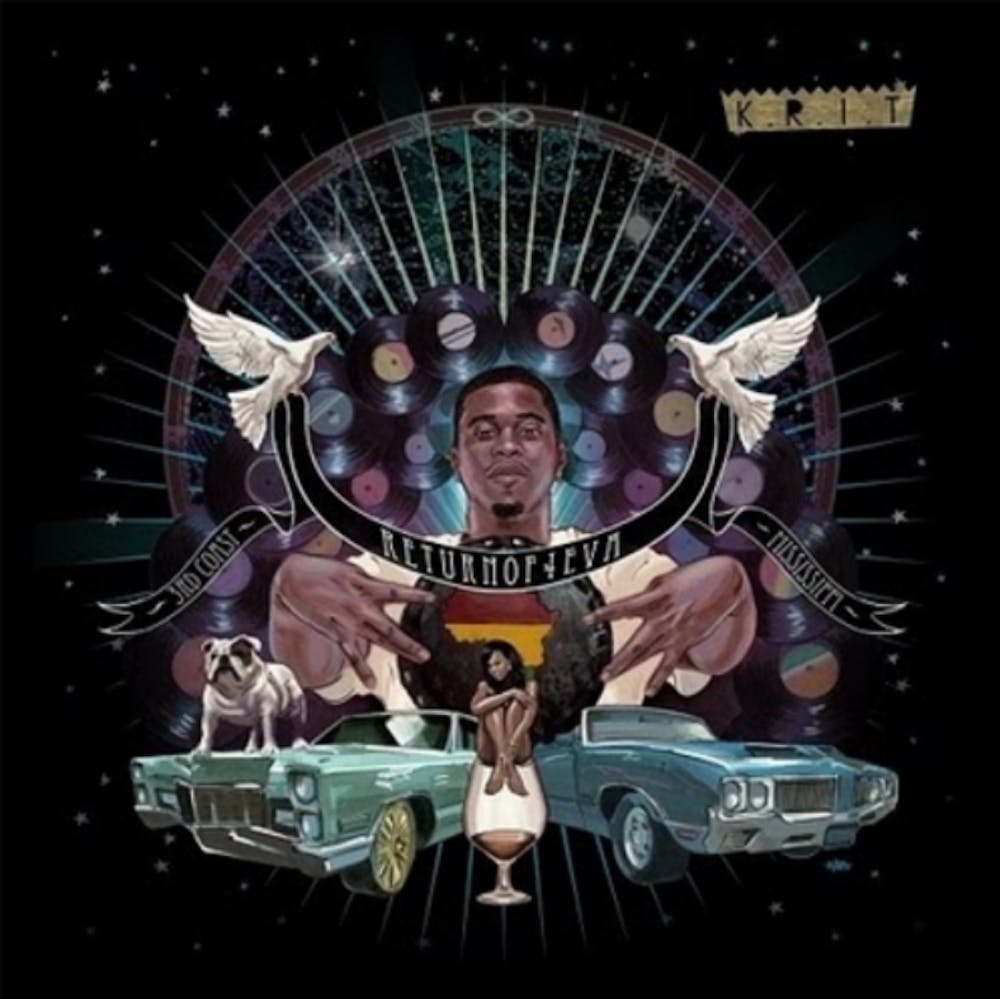Rap music in the South has constantly been regarded as an afterthought in terms of regional hip hop supremacy. When landmark acts like OutKast and UGK emerged in the mid-1990s, it was a breath of fresh air and nothing short of a revolution for artists in that area. They were finally offered a national platform that had been disproportionately given to the petty feuds between the East and West coast rap cliques, which overshadowed even the groundbreaking music coming out of those regions at the time.
The consciousness of Southern music is typically characterized as pensive, forlorn, deeply emotional -- qualities that old country music is beloved to this day for. Both OutKast and UGK, and others as well, combined the ethos of traditional folk and country music with a style that was more influenced by the burgeoning genre of hip hop; marrying braggadocio with personal memoirs of struggle and philosophy.
As time went on, the blends that made Southern hip hop so essential in this short time frame began to fade into what many outsiders call the abasement of current rap music: lazy rhymes, rapacious glorification of money and sex, and loud trunk-knocking beats that distract away from any lyrical substance that may have been there by accident.
This is an overly harsh way to perceive Southern hip hop in the 2000s, as there were still many worthwhile artists and styles that came about. Not all music that has vapid lyricism and vociferous instrumentals is necessarily bad, either. But this trend of Southern hip hop that had become exhaustively indulgent by 2010 gave way to an artist that remains to be given the recognition he deserves, Big K.R.I.T.
K.R.I.T., whose real name is Justin Scott, is from Meridian, Mississippi and proudly southern, flexing his heritage throughout his music. Scott takes his influences to his own unique craft, and develops a sentient reflection of both him and his predecessors. His first mixtape, K.R.I.T Waz Here, was received extremely well in the underground and garnered a somewhat popular buzz for what he was going to drop in the future.
A year later, in 2011, he dropped another mixtape, Return of 4Eva: a longer, bolder and more emotionally profound project.
Return of 4Eva feels like an album. It’s over 20 tracks and spans almost 90 minutes. Despite its intimidating length, there’s not a single moment that bores or drags, and everything seems to fit in its place. It’s a rare album that sounds great on first listen, and every listen afterward there’s something more to bite on thematically and sonically. A handful of tracks stick faithfully to the simple tales of life in the South, where potentially mundane topics like changing tires on his truck are converted into bangers like “Rotation.”
The album radiates a bullish energy right from the start with “Rise and Shine” and “R4 Theme Song;” the former could have fit snugly into OutKast’s Aquemini and the latter on any of UGK’s albums. What makes Scott different enough to enrapture a listener from start to finish on this album is his lyrical and vocal abilities that feel authentically his. This is summed up no better than on tracks like “Dreamin’,” “American Rapstar,” and “Highs & Lows;” all tracks that combine catchy choruses with subdued delivery and emotive lyricism. Much of this project is very relaxing to listen to, but not to be mistaken for low energy. There’s a lot to digest lyrically, and Scott is a captivating performer that warrants a closer ear.
Scott also dishes out a fair share of social commentary on tracks such as “Lions and Lambs,” diving into themes of loyalty and the fickle morality of people, and “Another Naive Individual Glorifying Greed & Encouraging Racism,” talking about how staying true to himself and fulfilling his responsibility to those who look up to him is paramount in his life.
Scott’s character is on full display throughout Return of 4Eva, and each track comes together to create the vivid and compelling artist behind it all. Not to mention, the production across the board, exclusively from Scott himself, is superb and fits perfectly for whatever message the song is trying to communicate. This is one of the best projects out of the South in this century, and it stands today, nine years later, as a powerful and refreshing heir to the throne of Southern hip hop glory.
Best tracks: “Rise and Shine,” “Dreamin’,” “Rotation,” “My Sub,” “American Rapstar,” “Sookie Now,” “Highs & Lows,” “Made Alot,” “Lions & Lambs,” “Time Machine,” “Get Right,” “Players Ballad,” “Another Naive Individual Glorifying Greed and Encouraging Racism”
Rating: 5/5






